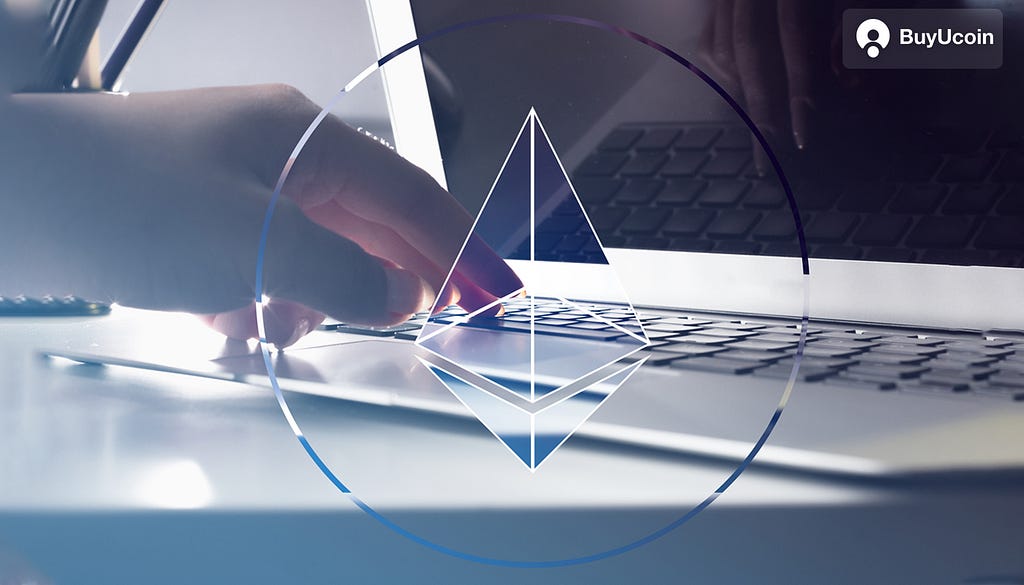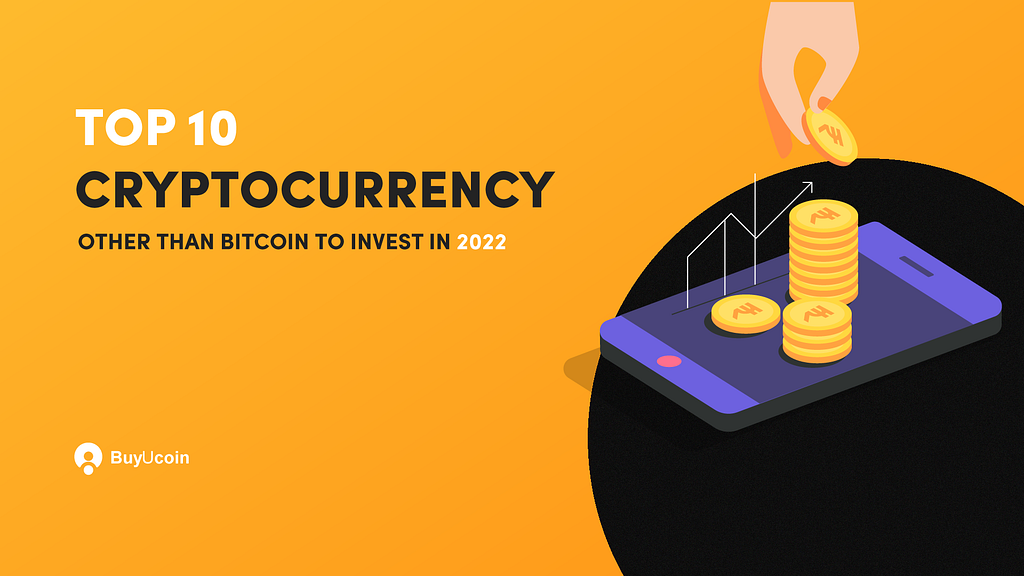What Does the Future Hold for Ethereum?
Everything You Need to Know About Eteherum’s Future Plan
Future of Ethereum cryptocurrency
Several cryptocurrencies are battling for market share. Bitcoin is the foremost cryptocurrency followed by Ethereum, the world’s second-largest cryptocurrency. But what makes Ethereum so unique that it continues to be the second-largest cryptocurrency by market cap? Is Ethereum superior to Bitcoin? Will Ethereum surpass Bitcoin? To find out the answers to these questions, let’s first learn everything there is to know about Ethereum.

Ethereum: A Brief Introduction
Cryptocurrencies are consuming the whole financial industry. Every day, new cryptocurrencies emerge. Bitcoin is the cryptocurrency that came out to be the most impactful in the world. Altcoins are cryptocurrencies that were created after Bitcoin. Altcoins such as Ethereum, Litecoin, NEO, and Ripple have changed the crypto-world in the same way that Bitcoin has.
Ethereum is an open-source, decentralized blockchain technology with its coin, Ether. ETH serves as a platform for various cryptocurrencies and the execution of decentralized smart contracts.
Vitalik Buterin initially described Ethereum in a whitepaper in 2013. Buterin and his co-founders raised funds for the project through an online public crowd sale in 2014. The project team raised $18.3 million in Bitcoin, and the price of Ethereum in the Initial Coin Offering (ICO) was $0.311, with almost 60 million Ether sold.
On July 30, 2015, the Ethereum Foundation formally published the blockchain under the codename “Frontier.” Since then, there have been multiple network upgrades, including “Constantinople” on February 28, 2019, “Istanbul” on December 8, 2019, “Muir Glacier” on January 2, 2020, “Berlin” on April 14, 2021, and, most recently, the “London” hard fork on August 5, 2021.
Ethereum is often regarded as the most prominent altcoin in the cryptocurrency sector. As a result, understanding the functionalities of Ethereum is just as crucial as understanding the operations of Bitcoin. When Bitcoin was formed more than a decade ago, Ethereum was founded four years later.
If you consider investing in a cryptocurrency other than Bitcoin, Ethereum may be the best option. If you are new to the cryptocurrency industry, you should understand how blockchain technology works and how the blockchain idea is used to manage cryptocurrencies.
What are the Components of Ethereum?
Ethereum, like all other cryptocurrencies, has a proven track record of stability, consistency, and growth. Ethereum is more than a cryptocurrency and blockchain; it’s a protocol and it contains many applications, services, enterprises, and economies.
The Ethereum Blockchain: Ethereum, like Bitcoin, improves the network through the use of proof-of-work blockchain technology. This blockchain keeps a record of everything that occurs on Ethereum, and it’s the foundation of the Ethereum network. The Ethereum network, like Bitcoin, employs code extraction in addition to transactional data.
The Ethereum Virtual Computer: The Ethereum Virtual Computer, also known as EVM or ‘The World Computer,’ is a vast worldwide network maintained by all nodes of the Ethereum network to allow Ethereum to execute the whole program, much like how we find on our laptops, desktops, and smartphones.
The Native Token: When discussing the price of Ethereum, many people refer to the cryptocurrency Ether, often known as ETH. Ether is the native coin of the Ethereum network, and it is used to manage network activity. However, unlike the current Bitcoin, it rewards node workers and miners for running and protecting the network.
Smart Contracts: A smart contract is a self-executing set of instructions that functions without a person’s involvement. Once installed, they can self-execute and will not stop working if human involvement is necessary. This technology has been popular by the world’s banking institutions, government organizations, and corporations to help them run their business more efficiently.
Tokenization: This allows anybody to create a new digital currency on the Ethereum network. The token economy has a multibillion-dollar market capitalization. As application-specific money, they are usually created in cooperation with dApps. It is sometimes used to raise cash for new blockchains through initial coin offerings (ICOs).
Ethereum is often regarded as the most prominent altcoin in the cryptocurrency sector. As a result, understanding the functionalities of Ethereum is just as crucial as understanding it as the best option.
Ethereum Platforms
Blockchain was the technology that enabled Bitcoin and altcoins to exist. Every cryptocurrency has its blockchain platform, which it uses to manage its products and services. Ethereum, too, has its blockchain platform. It gives users an open-source platform to create agreements and conduct transactions online in complete security.
The same platform caters to devedevelopingentralized apps for managing digital currency and conducting digital transactions. According to recent revisions, Ethereum provides a free Ethereum mining website that gives miners the tools and procedures they need to create ETHER.
It promotes and encourages miners by providing them with a monetary incentive. The revenue is distributed in the form of free ether coins and tokens. To track the payouts for mining new currencies online, an Ethereum mining contract is formed with the miners. The new Ethereum 2.0 platform is considered the most extraordinary Ethereum cloud mining pool globally.
Ethereum’s Foundation
Ethereum’s creator, a 19-year-old guy, was only a teenager. It’s worth noting what inspired him to build such a coin. He planned to use a decentralized approach to democratize the entire country.
Decentralized transactions should be used in organizations, government sectors, commerce, and finance. A massive portion of the population still fantasizes about the notion.
Several studies have been undertaken on the subject, and they all imply that a decentralized system might be essential in bringing about significant change in our world. A decentralized system might simplify and safeguard the whole functioning of humanity. Ethereum 2.0, which is far more sophisticated and offers many advantages, was just released.
What is the Difference Between Ethereum & Ethereum 2.0?
Ethereum 2.0 is a network upgrade that aims to improve the network’s security and scalability. A staking model will replace Ethereum’s current mining mechanism as part of this upgrade. Several teams inside the Ethereum ecosystem are working on these improvements.
A network can only support roughly 30 transactions with Ethereum 1.0, causing latency and congestion. Ethereum 2.0 promises to process up to 100,000 transactions per second, and the utilization of shard chains will be used to attain this increase.
The first suggested addition is the Beacon Chain, which went live on December 1, 2020. The Beacon Chain, which includes a move from the proof-of-work (PoW) consensus mechanism to the proof-of-stake (PoS) consensus algorithm, enhances security even more.
“The Merge” step of the Ethereum 2.0 upgrade will occur in 2022. As the name indicates, “The Unite” will join the mainnet with the Beacon Chain, formally moving from primary chain use to PoW consensus, resulting in increased energy efficiency.
The next stage, which will also happen in 2022, is the deployment of shard chains, which will dramatically boost Ethereum’s storage capacity and data access. Transaction speeds are expected to help the network reach 64 blockchains.
Advantages of Ethereum 2.0
Ethereum 2.0 may include a slew of new features that will entice many developers to join the network. The following are the three key improvements area units:
Scalability
Ethereum should support thousands of transactions per second (TPS) for applications built on the network to function faster and at a reduced cost. The combination of sharding with a PoS formula is expected to increase Ethereum 2.0 scalability by adding many nodes, resulting in greater TPS while using less power.
Reliability
Ethereum should be as secure as feasible to withstand attacks and let users, particularly businesses, feel at ease with abuse. The previously stated Beacon Chain is intended to aid in network security.
Sustainability
Reducing one’s carbon footprint has emerged as a critical problem in the Bitcoin industry. Because there will be no mining, the captive agreement formula consumes a lot of energy, and Ethereum 2.0 will be more suitable for the situation.
Will Ethereum 2.0 Be The Replacement For Ethereum?
The consensus mechanism used is the fundamental distinction between Ethereum 2.0 and Ethereum 1.0. Ethereum utilizes a proof-of-work (PoW) method, whereas Ethereum 2.0 employs a proof-of-stake (PoS) mechanism.
The proof-of-work approach is an energy-intensive mechanism in which miners interpret complicated mathematical problems utilizing hardware processing power. This approach also verifies new transactions; whoever solves the mathematical challenge uploads a substitute dealing with the blockchain’s existing transactional knowledge.
Is Ethereum 2.0 A Secure Platform?
Ethereum 2.0 was designed with security in mind. Most PoS networks have a small number of validators, which results in a more centralized structure and worse network security. Ethereum 2.0 requires at least 16,384 validators, making it far more decentralized. As a consequence, you can feel protected and secure.
Organizations such as Least Authority and Quantstamp are performing security audits on the code for the current version of the Ether network. The Ethereum Foundation is forming a specialized security team to investigate potential cryptocurrency cybersecurity issues.
Conclusion
There is no denying that Ethereum has the potential to skyrocket in value. Many people discuss the Bitcoin surge, but many are unaware that it has influenced the other cryptos in the line. Ethereum is a close relative of Bitcoin. As a result, if we talk about altcoins, it is very conceivable that they will absorb the most effect. Ethereum has taken a hit this year as new cryptocurrencies enter the fray.
Ethereum is powerful because the community members never let it falter. It will undoubtedly expand in the future.
Cryptocurrency or Stock Market: Which is Better Choice for your first Investment?
What Does the Future Hold for Ethereum? was originally published in BuyUcoin Talks on Medium, where people are continuing the conversation by highlighting and responding to this story.



